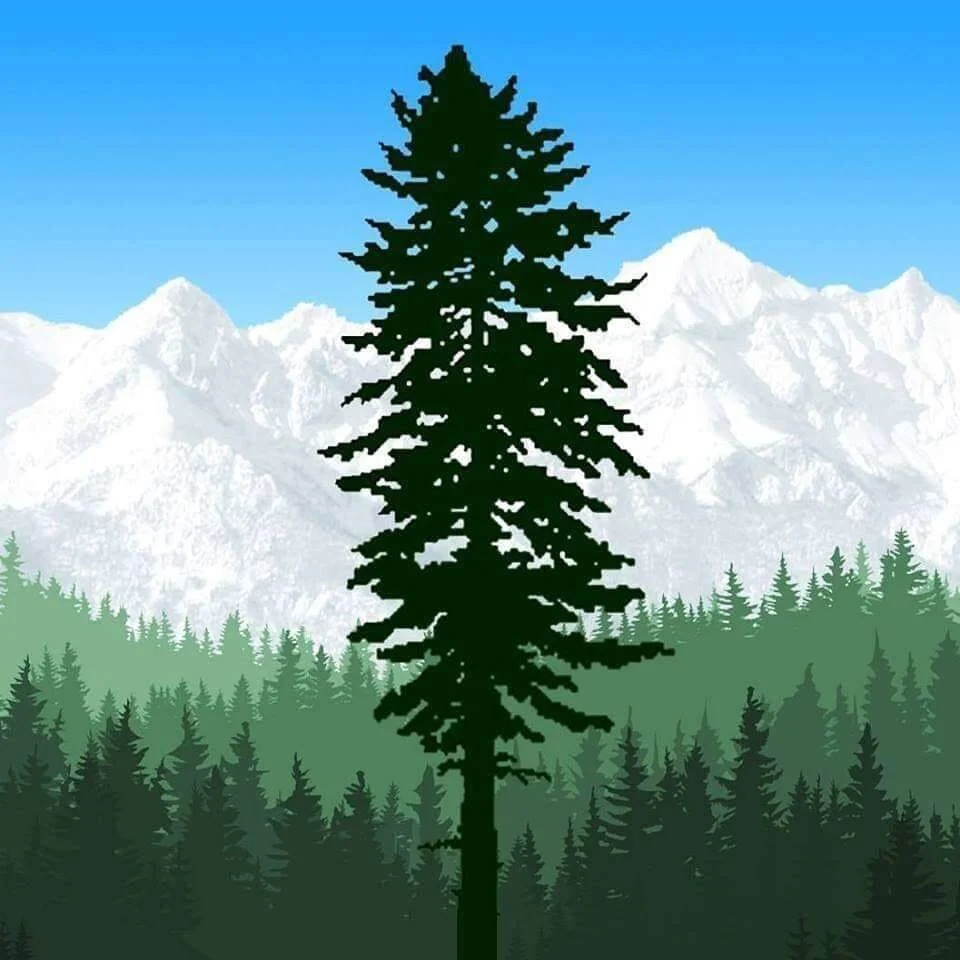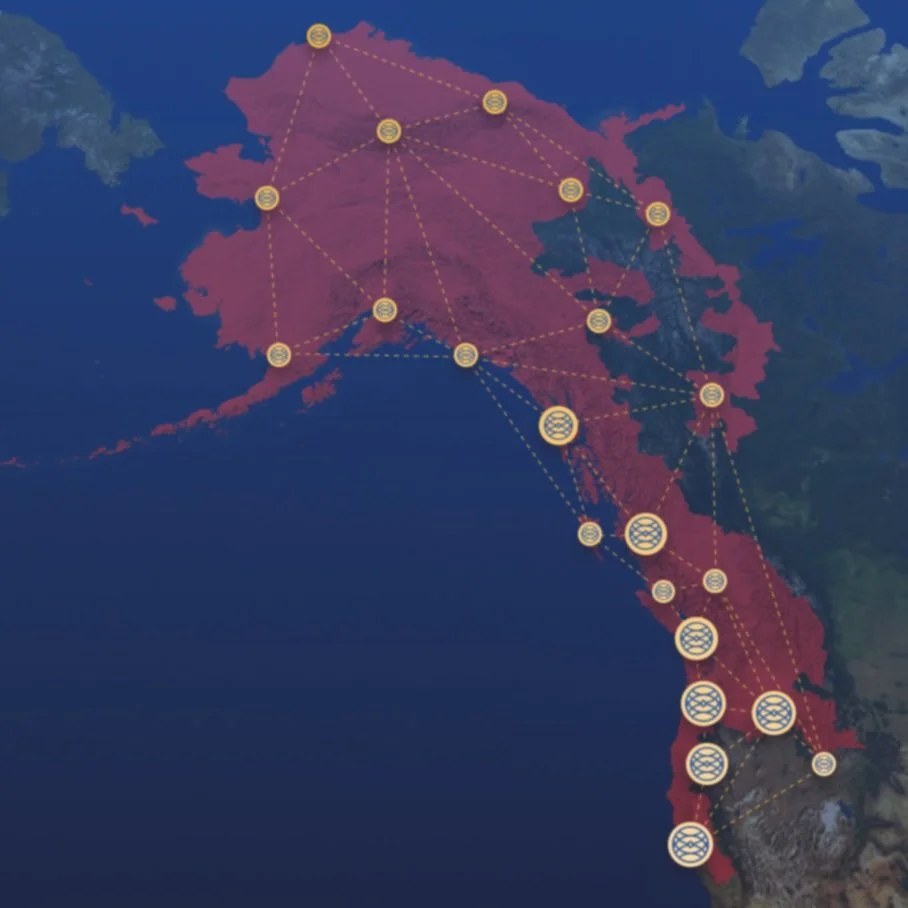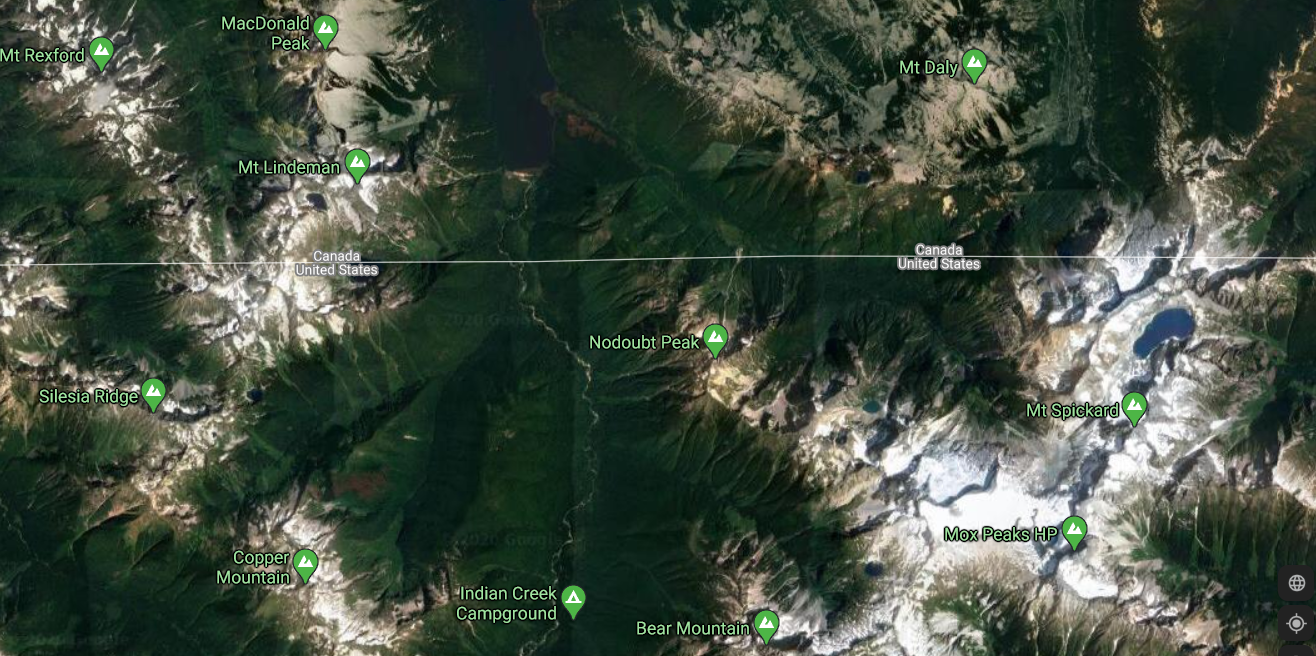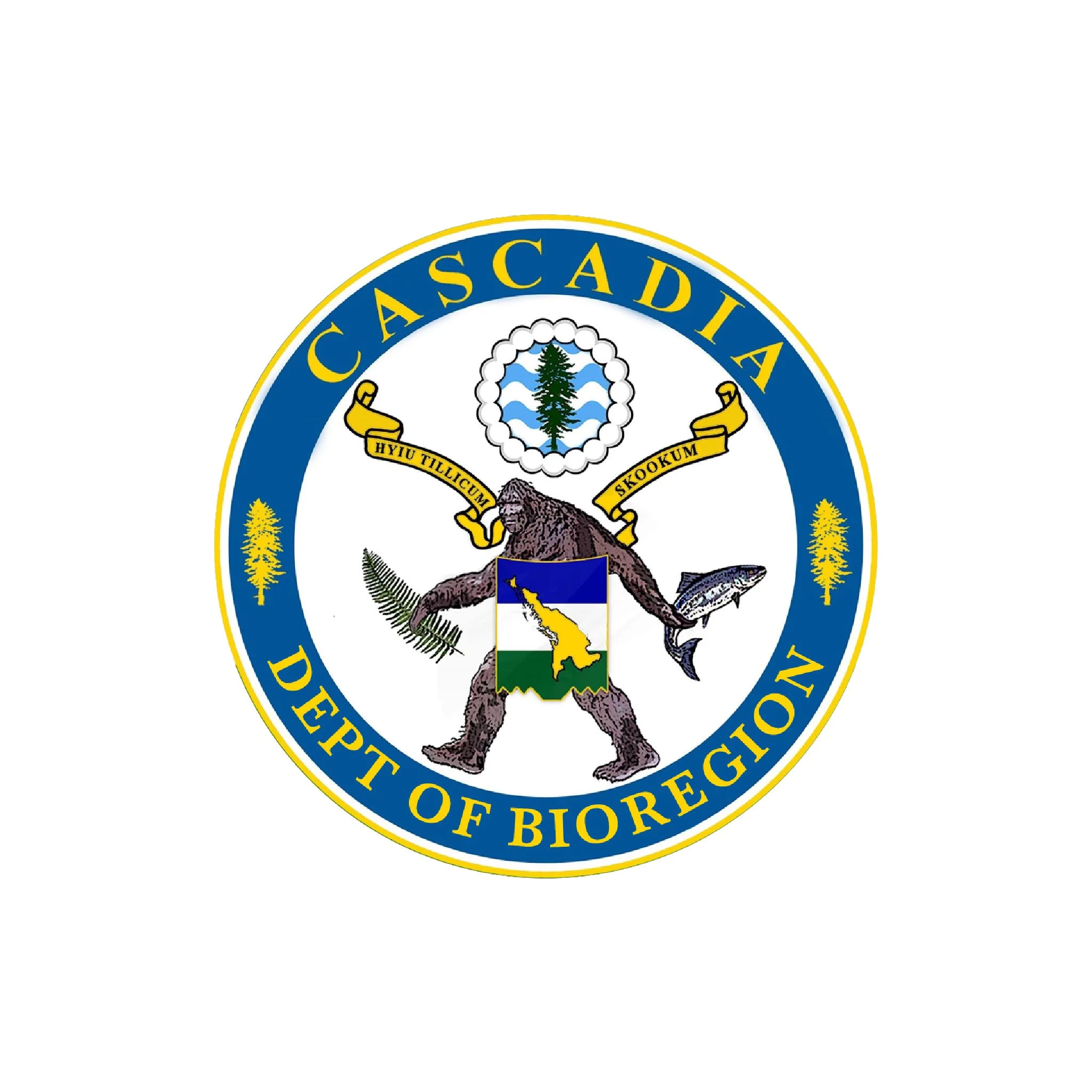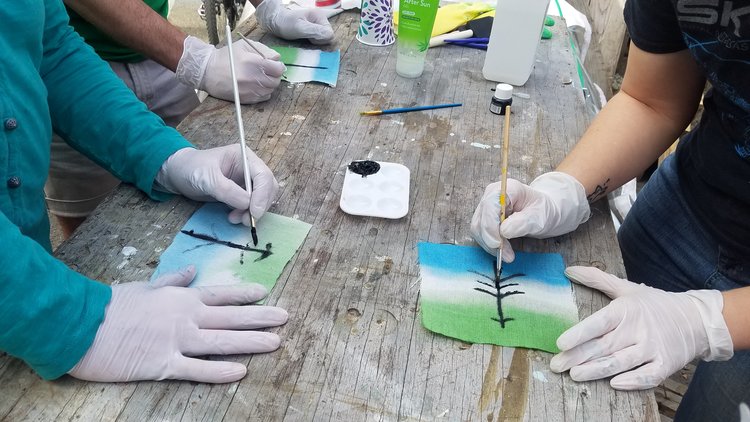Originally published by Planet Drums Raise the Stakes, the following article is from Cascadia Institute director David McCloskey on what makes bioregional boundaries.
Your Chinook Wawa Word of the Day: Kiuatan
KIUATAN
[KIU'-a-tan] or [KHI-YU-tun] — noun.
Meaning: Horse
Origin: Generally believed to be from Chinook i-kiuatan < ikee’utan ‘horse’, though some sources claim it is of Mamachatpam (Yakima) origin.
There are several words for horses used in Chinook Wawa, though kiuatan seems to have been used more in southern regions of Cascadia, and is the most commonly used word in modern publications.
While the word simply means ‘horse,” it also extends to a number of types of horses, such as “tenas kiuatan” (colt; pony), klootchman kiuatan” (mare), "cooley kuitan” (a race horse), “lemolo kiuatan (mustang; wild horse)” and “stone kiuatan” (stallion; ungelded horse). This last term should not be confused with the act of “mamook klak stone kiuatan” (to castrate a horse), which would give you a “burdash kiuatan” (gelding). It is also the bases of a variety of words for older horses, such as “oleman kiuatan” (old horse), “hyas oleman kiuatan” (a very old horse), and “oleman klootchman kiuatan” or “lamai kiuatan” (old mare, nag), and included words pertaining to parts of horses, like "kuitan lepee" (hoofs), professions associated with horses, such as “kuitan kapswolla" (horse thief), and activities involving horses, such as "klatawa kopa kuitan" (to ride; go by horse).
If you are on a long ride and someone tells you "nesika kuitan delate till" (our horses are very tired), then it would be best to stop and let them rest. Once stopped, someone might ask you "mika mamook kow mika kuitan?" (have you tied your horse?). If not, than you had best "kow mika kuitan" (tie your horse), otherwise the next question someone will probably be asking you will be “mika na klap mika kiuatan?” (did you find your horse?)
A HORSE IS A HORSE OF COURSE OF COURSE
"Okoke mika kuitan?" (is this your horse?)
"Okoke kuitan kopa Alex." (This is Alex’s horse.)
"Yaka hyas kloshe kuitan?" (Is that a good horse?)
"Nika kuitan elip kloshe kopa yaka kuitan." (My horse is better than his horse).
Okoke kuitan yaka hyas oleman" (That horse is very old.)
A HORSE OF A DIFFERENT COLOR
Pil kiuatan comes from the Chinook particle “tlpil”, used for a bay or chestnut horse (i.e. red horse).
Leblow (also spelled Lablow or Leblau) comes from the French “Le Blond”, used for a sorrel or chestnut-coloured horse.
Leclem (also spelled Laclem, or Leklem) comes from the French “Le Creme”, used for a cream-colored or light dun horse.
Legley (also spelled Lagley) comes from the French “Le Gris” or English “Gray”, used for a gray-colored horse.
Sandelie (also spelled Sandelee) comes from the French “Cendre” or English “Sandy”, used for a roan or ash-colored horse.
Lekye (also spelled Lakai or Lekay) comes from French-Canadian word “La Caille”, used for an appaloosa or a piebald horse.
Visiting Where Bioregions were Born: The Planet Drum Foundation in San Francisco
We’ve been very excited to be visiting with Judy Goldhaft at the Planet Drum foundation in San Francisco. Planet Drum Foundation was founded in San Francisco, CA in 1973, and with an association of community activists and ecologists worked to develop the concept of a bioregion, from which the Cascadia movement grew out of in the 1980's. Planet Drum works to research, promote and disseminate information about bioregionalism, a grassroots approach to ecology that emphasizes sustainability, community self-determination and regional self-reliance.
Peter Berg was a social revolutionary thinker, writer, ecologist, environmental activist and founder of Planet Drum Foundation who passed away at died on July 28, 2011
It's been an absolute treat to talk with Judy about the history of Planet Drum, and to be able to read and learn about the more than 45 years that they have been active. She's loaded us up with a huge stack of early Raise the Stakes newsletters and other wonderful proceedings. We are excited to bring back some of this knowledge and to scan, share and incorporate this more strongly into our organizing work in Seattle and elsewhere.
Cascadia represents bioregionalism at California Unity Conference
Launching our New Cascadia Co-Creators Network
7th Cascadia Poetry Festival will be May 1-3 2020 on San Juan Island
For the 7th iteration of the Cascadia Poetry Festival, SPLAB moves its bioregional cultural investigation to The Multiverse on San Juan Island. A gallery and island cultural center run by Jennifer, Ian and Gavia Boyden will provide a more intimate setting for festival attendees to go deeper into the intersection of poetics and bioregionalism.
Indigenous Voices of Cascadia
How to Vote Cascadia
Eugene Embassy 1st Cascadia Meeting
Diplomat Newsletter December 2019
Diplomatic Corps Newsletter
December 2019
Towards 2020
Fulfilling our Vision
As our first year of work with the Department of Bioregion comes to a close, a time to reflect and focus arises. Our weekly meetings in Seattle have grown in attendance and scope. From them, many activities and projects have taken place around the bioregion. This year we've hosted a fun run, presented at Cascadia Convergence, made a splash in the Seattle Pride parade anchored by the Cascadia Bus, had a handicraft focused Cascadia Day, hosted Camp Cascadia in the Willapa Hills and had our Cascadian Passport Station pop up around the bioregion. All of this has only been possible because of the dedicated work and enthusiastic volunteerism of you our Diplomats. Cascadian visibility has certainly increased due to all of your efforts, and for this, the sincerest of Thank Yous!
Looking forward, we're optimistic about continuing to grow the Department of Bioregion and the Diplomatic Corps. A meet up the first week of this month in Eugene mobilised a local group of Cascadians there, while contacts in Corvallis and Everett indicate meetings there are forthcoming. We've created some wonderful foundational documents and systems that will help us remain organized as we grow. Perhaps most importantly, our group projects have become more focused around the question "If 10,000 people wished to join our movement tomorrow, how can we be ready?"
It is with that question in our minds that we go into the coming decade. While we can't predict what the coming year and future will bring, we know some of the challenges facing Cascadia, and can prepare to face them with confidence. A general election in the U.S. will doubtlessly have profound effects on public sentiment and offers us an opportunity to highlight how, regardless of the outcome, Cascadia offers a pathway forward with greater democracy, decentralized power structures and a decolonizing spirit. Meanwhile, the advancing threat of a pipeline across British Cascadia threatening our waterways, ecosystem and overrunning indigenous sovereignty creates a rallying cry to protect all of the principles that define Cascadia and all of the life here.
Facing these adversities and opportunities, is what the Department of Bioregion is all about. With a positive message rooted in our love of place, unity through community and a desire to ensure a better future for all life in Cascadia, I look forward to continue building this movement with all of you.
Tolo tillikum, and Rise Cascadia Rise!
“Rise, Cascadia, rise. Protect our waters and skies. Rise, Cascadia, rise. Salmon and orca, cedar and fir. Rise, Cascadia, rise. Crows and otters, sons and daughters. Rise, Cascadia, rise.”
New Diplomat
Claudia Esplugas Masvidal
Catalonian native and recent University of Washington graduate Claudia Esplugas Masvidal has joined the Cascadian Diplomatic Corps bringingextensive experience as a writer, organizer and activist. With a focus on magnifying marginalized voices and innovative organizing methods, we are excited to see her contributions to the Cascadia Movement. Acting as a Diplomat at Large, Claudia's plans for 2020 include international outreach as she traverses the globe conducting interviews with other movement organizers and explores ways to connect them to bioregional principles. Welcome Claudia!
Passport Pop-Up
Last Sunday, Department of Bioregion founders Brandon Letsinger and Trevor Owen took the Cascadia Passport Station to the Seattle Freemont Sunday Market. While there, they issued Cascadian Passports, stickers and patches to the community. Many curious onlookers learned a thing or two about Cascadia and bioregionalism, while other stalwert Cascadians were elated to get their hands on our first issue, first printing Passports. They will be there again this week if you'd like to come by or join in spreading the Cascadian word. Market Info.
Thank you for all that you do diplomats!
Bioregionally yours,
Trevor Owen
Dean of Diplomacy
Washington State Working to Become the Largest Electrified Ferry Fleet in the World
It's time for a Cascadia Political Movement.
Introducing the Department of Bioregion: By Trevor Owen
Cascadia Must Send a Delegation the U.N. Climate Summit
Using A Social Justice Lens to Examine Our Work in the Department of Bioregion
The purpose of this lens is to provide a framework to guide what we do as Diplomats within the Department of Bioregion. Whether the work is posting a blog, creating a project, or leading a round table discussion, it is vital that we are examining that work with a social justice lens. It provides a common language to communicate about our work and ensures we are moving beyond short-term, immediate reaction to long term, thoughtful changes.
Your Guide for Dougsgiving, November 28th
New North American Watershed Maps are here!
De-colonizing Cascadia through Indigenous Storytelling
Diplomatic Corps Newsletter - November 2019
New Cascadia Membership Designs Are Here!
We love Cascadia, believe in bioregionalism as a philosophy to save our region and planet, and are tired of the craziness and insanity that has become commonplace in our world today. We want to be able to directly impact the issues that we care about, and so those living on this planet can have a real life and livelihood better than our own, rather than worse.



